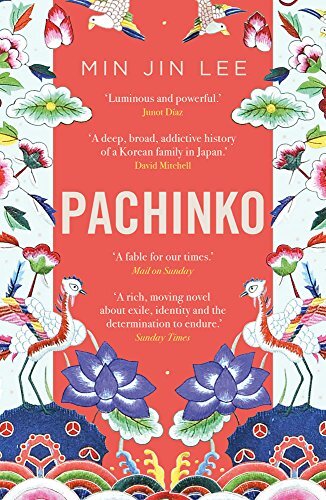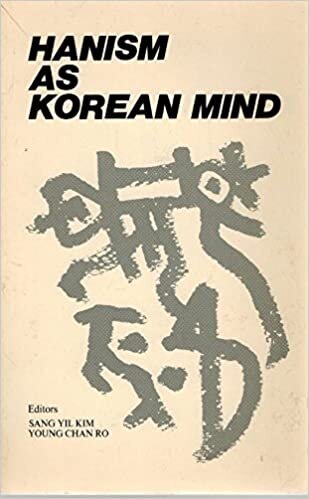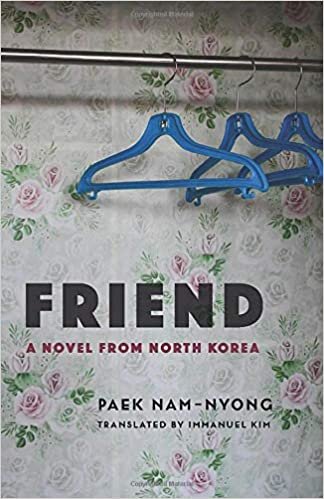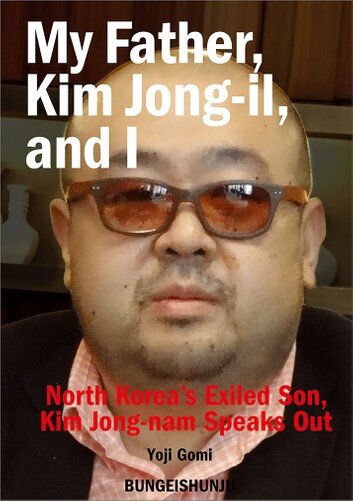For some it was a grand statement. The sight of United Nations Secretary-General António Guterres walking solemnly through the bombed-out suburbs of Kyiv: inspecting the rubble, listening to stories of massacre, and shaking his fist at accountability for the “evil” acts.
In the opening days of the conflict in Ukraine the United Nations produced a condemning motion of the General Assembly. They then removed Russia from the Human Rights Council. Just how, and why, Russia managed to be elected (in 2020) to such a body, with such a name – and what this did to embolden the Russian regime – is a story for another day, but the more alarming question is where this leaves the United Nations now.
It is a failure with a slow burn!
Twenty years earlier, then-Secretary General of the United Nations, Kofi Annan, was in a difficult and despondent mood. And during his Millennium Report to the General Assembly, he emptied his struggling voice onto the international stage: “If the conscience of humanity… cannot find in the United Nations its greatest tribune, there is a grave danger that it will look elsewhere for peace and justice.”
He was glancing back on recent horrors, and forward to the downfall of his institution. The 1990’s were supposed to be the comfortable, retirement years of the United Nations – with the children moved-out, the house paid-off, and plenty of time on their hands to soak-in the sun and enjoy a lengthy vacation or two. A time where, with the collapse of the Soviet Union and the end of Cold War conflicts, a peace dividend appeared close at hand: a long overdue and hard earned period of fortune and safety.
Instead the world saw a sudden rise in civil war, mass atrocities, and humanitarian crises. With that word humanitarian taking on extra weight, as civilian populations not only bore the brunt of this shifting violence, but – more so than ever before – actually became the primary targets of it in places like Rwanda, Somalia, Uganda, Sudan, Iraq, Iran, Indonesia, Guatemala, Timor, Bosnia, Cambodia, Burundi, the Congo, Ethiopia, El Salvador, Sri Lanka, China, Algeria, Angola, North Korea, Syria, Georgia, Yemen, Kurdistan, Guinea-Bissau, Central African Republic, Lebanon, Egypt, Eretria, Mali, Chechnya, Kuwait, Bahrain, Liberia, Sierra Leone, Zimbabwe, Kenya…….
All that human suffering exposed something about the United Nations, something that the Cold War years had papered over. And with it Annan saw only two possible futures for the institution he was in charge of, if it stayed unreformed: either 1. Mass atrocities would continue to happen while the world simply watched-on, infirm and weak, or 2. Countries would simply stop seeking United Nations approval before intervening in such conflicts.
Though that second option might appear unobjectionable to some ears, it is still frightening enough. For starters it is a violation of one aspect of international law in the hopes of remedying another. But most significantly, it removes the possibility of oversight and universality; opening the space for countries – as Russia has recently just done – to manufacture crises in order to legitimize invasions.
So in some ways, we are already there – living in Annan’s nightmare.
But international hope rarely dies so fast nor so clean. The reforms – the structural changes – that Annan had in mind were ambiguous, but his target was not. The United Nations was formed in the aftermath of the Second World War with an impossible task: to become the arbiter and guarantor of global peace and security.
This was clearly an attractive prospect for small, less secure nations; but not so much for the ‘Great Powers’ for whom it was only a constraint. With the international order looking like an ungoverned frontier town in a lawless corner of the Wild West, these few countries (strong enough to defend themselves and conquer others) were already in an enviable position. So they would need more convincing. The answer to this, and the hook that reeled-in those ‘Great Powers’, was the United Nations Security Council.
The United States, Great Britain, France, Russia (then the USSR) and China (then Taiwan) were gifted permanent seats on the Security Council and a unique authority to veto any resolution upon a single vote. With this, they were allowed to retain all the unequal power and influence that they already held – a tower from which they could always protect their own national self-interest; remaining ‘Great Powers’ forever!
The United Nations had compromised its own functionality in order to get everyone inside the room, and signed-up. The hope was that once everyone was a member, and sitting around the table from each other, all those differences would fade over time; that soon enough reformed minds would reform the institution, or at least behave in a way that would make any such reform unnecessary. Then the Cold War ended, and everyone was positively giddy with expectation – lining-up to cash-in those peace dividends.
That was well over thirty years ago. Minds did reform, somewhat. But the institution never followed – the dividends, and the golden years of retirement, never arrived.
Whenever some distant horror catches our attention and outrage, and then instead of intervening (helping in some way to stop the violence) we sit back and watch it happen, there is always a question of ‘political will’ which needs answering. As the name suggests the United Nations is a collection of domestic governments, and for any given intervention those governments will need to find the troops, the equipment, and the funding.
Which steps us back again to the horrors of the 1990’s. In Rwanda, as the Hutu majority were hacking the Tutsi minority to death at the rate of ten thousand a day, the Security Council passed an authorizing resolution for a peace keeping force. Commander of the mission, Canadian Major-General Romeo Dallaire, assessed the situation and reported that he could halt the genocide with as little as 5000 properly equipped troops. In response, the Security Council met again and passed a second resolution… reducing troop numbers from 2558 to 270. The genocide rolled on, day after day, ten thousand dead after ten thousand dead…
For every failure or success of political will, there remains this lingering bottleneck to action. The Security Council is the final judge of international force – the only means by which an intervention can be authorized and considered legal. All the will and commitment of all the nations on earth doesn’t matter a damn if just one of five countries is not quite convinced.
If after his speech to the Millennium Report of the General Assembly, Kofi Annan had been pressed to jot-down what his ideal reforms would actually look like, there is a good chance they would have resembled The Doctrine of the Responsibility to Protect (R2P).
First cooked-up in 2001 as a significant turning of international norms, R2P made the sovereignty of states conditional upon the protection of civilian populations within those states. It required the international community to help domestic governments achieve this, and importantly it obligated intervention wherever this standard was not being met (ethnic cleansing, genocide, crimes against humanity, and grave or systemic war crimes).
A streamlining of institutional gridlock, R2P hit the global scene to significant fanfare and hope. It was quickly being referenced in presidential statements, in United Nations declarations, and as the justification for noteworthy interventions such as that in Libya. Then-British Foreign Minister, Jack Straw, announced confidently that “if this new responsibility had been in place a decade ago, thousands in Srebrenica and Rwanda would have been saved”, while the lead author of The Doctrine, Gareth Evans, touched upon the bubbling of expectation within the humanitarian movement:
“Maybe, just maybe, we’ll be able to say ‘never again’ in the future without having to periodically look back, as has so often been the case in the past, asking ourselves, with a mixture of anger, incomprehension and shame, how did it happen again.”
It was at the 2005 United Nations World Summit where R2P was formally adopted into international law. And a consensus was needed… a consensus of the Permanent Five Members. As the quiet diplomacy rumbled-on behind the summit curtains, R2P was stripped-back in language and content, and then stripped-back again.
Of all the unpleasant changes to the new Doctrine, it was the Security Council reforms that did all the damage. In its original proposal, R2P came with a ‘code of conduct’ for the Permanent Five Members, limiting their ability to veto resolutions which dealt with serious humanitarian disasters. There was also a range of alternative pathways to intervention which bypassed Security Council authorization altogether. These were all removed! In their place a reassertion of absolute discretion for the Security Council, over all interventions. And with that, R2P died in embryo!
With nothing to replace R2P in the two decades since, the invasion of Ukraine cannot be seen as some aberration of international law, but rather as a deliberate and explicit aspect of it. Russia checked the soft winds of moral outrage and the hard costs of sanctions, then pushed on to conquest and war crimes knowing that nothing else would come its way. Vladimir Putin badly misjudged Ukrainian resistance, as well as the strength of his own army, but he was sure of one thing: the United Nations would do nothing!
What the United Nations actually did, was complain and gesture. Because that is all it had in its arsenal! The issue was naturally whipped into a resolution and brought before the Security Council. And one after the other, member-states either abstained or voted in favour, until Russia of course, who vetoed the legislation and put an end to the whole pantomime.
Just like that, the only body of the United Nations that had the power to change things was silenced by the same lawless government they were hoping to stop.
International law is a tricky thing. It is a body of legislation without a police force to back it up. To get things done in this environment, and to maintain the rule of law, it is left to the discretion of militias; coalitions of countries holding others to account. And it is questionable as to whether any such coalition would have found the courage to do more for Ukraine’s defence than is already being done now, even if Russia hadn’t blocked their efforts.
But there was less sadness in the air, and much more impotence, when Secretary-General António Guterres walked out of that failed vote stressing “we must never give up”, and then quickly pivoting his language from Russian troop withdrawals to that of humanitarian corridors and access for aid organizations.
US Ambassador Linda Thomas-Greenfield, held a firm line when she said: “You can veto this resolution, but you cannot veto our voices; You cannot veto the truth; You cannot veto our principles; You cannot veto the Ukrainian people; cannot veto the UN Charter…and you will not veto accountability.” It’s a nice sentiment, but Putin had the only veto he needed: a veto on military intervention.
Since then, we have had credible evidence of war crimes, crimes against humanity, the sight of village-wide massacres in places like Bucha, and ever-twisting justifications from the Kremlin for the invasion. All the while, the Security Council has remained frozen by a single belligerent member. It is the spectacle of prosecutors and police wanting desperately to arrest and bring a criminal to justice, but only if they first get the criminal’s permission to do so.
So with the Russian army slowly sharking its way across Ukraine, what can be done?
Well that R2P ‘code of conduct’ would have been a reasonable start. Not only did it limit the reach of the veto powers to less serious humanitarian situations, but also removed the veto power for any resolution which otherwise would have majority approval within the Security Council. The original R2P report also recommended an expanded role for the General Assembly, to review and umpire Security Council vetoes.
Before R2P – in fact tracing all the way back to the League of Nations – there has been a continuing push for a United Nations constitution, in the hope that such a document would bring a better shared-understanding, as well as more clearly codifying the rules, tools and structures of international cooperation.
Then Thomas Franck proposed the ‘Jurying Process’ under the assumption that grand institutional reforms (such as those just mentioned) would be just too difficult to achieve. Instead, he suggested working around the existing architecture by simply adding an extra layer of force and persuasion. Similar to an American grand jury, this new organ would offer a means around the strict constraints of the United Nations’ governing bodies, and become a separate way to produce moral and legal judgements. It would, therefore, also hold the Security Council to account by sitting in judgement upon its application and interpretation of international law.
Next Thomas Pogge proposed the International Court to run on similar lines. Rather than being made up of delegations from member states, this court would be comprised of a panel of legal experts (judges) with a proven history in international law and the United Nations. Just like with the ‘Jurying Process’, this would be relatively cheap to set-up, would supplement the existing architecture and so not require any large scale reform, and yet would be able to move quickly to make judgements on questions of international law (independent of state influence). If operational today, it would have ruled Russia’s invasion illegal in real time, and then also ruled any remedying intervention legal. Just like that, the application of international law would be divorced from politics.
Other reforms have been the long-proposed United Nations Standing Army, an extension of United Nations membership, expanding the number of vetoes needed to block resolutions, an empowerment of the General Assembly and a democratization of the whole organization, the abolishment of the veto altogether, introducing a weighted voting system, tying veto powers to budget contributions, strict limitations on the power of the veto, creating veto protected categories for resolutions, streamlining broader operational effectiveness of the Security Council,…
Of course no proposal, no matter how mild or limited in its reach, has ever managed to achieve even the most minimal levels of traction within the organization.
And the short term behaviour of Ukrainian President, Volodymyr Zelenskyy, says a lot. He turned up at the United Nations, put his case to the world, pleaded for more assistance, and then as the watching members were running for TV cameras to say proudly “today, we are all Ukrainians”, as Luxembourg’s representative did, Zelenskyy had already moved-on to the important business; to the only thing that might save his nation.
Like a guest-host on an established TV show, he began appearing in different houses of different parliaments, on different prime time channels, in different languages, reaching-out directly to any country that would have him, and give him five minutes of attention and compassion. Collective action requires a consensus and an overcoming of the Security Council veto. Individual action requires only the individual country in question.
This is how Ukraine has been defending itself to date: with a few weapons from country A, a few planes from country B, armoured vehicles from C, equipment from D, drones from E, food and supplies from F,… And make no mistake about it, this is Kofi Annan’s nightmare scenario, repeating itself.
As the genocide in Rwanda spiralled towards nearly a million deaths in less than three months of violence, and as the peace keeping force was boarding planes instead of protecting civilians, there was another farce unfolding within the walls of the United Nations: The Genocide Convention was already in effect, and carried with it hard obligations upon member states.
Conscious of this, the language danced and skipped around the fringes of things, with near-comical avoidance of the term genocide so as to not trigger any legal responsibilities upon member states. Instead the ‘great’ deliberative body of international peace and security spoke only of isolated “acts of violence” and “sporadic violence” as the fastest moving genocide in history killed seventy percent of the Tutsi population, saw as many as half a million women raped, displaced the majority of the Rwandan population, sparked regional wars with 150,000 people soon being killed in neighbouring Burundi, and rolling violence across the Congo which would kill 3.8 million people in the next decade.
Then, as now, the United Nations watched and did nothing! Instead the genocide in Rwanda ended in July 1994, not because members states felt the obligations of international law, not because international outrage grew too loud to ignore, and certainly not because the United Nations lived-up to its own self-proclaimed standards. But only when a Ugandan-backed Tutsi force of rebel troops, under the leadership of current Rwandan President Paul Kagame, fought their way into the Capital Kigali, and removed the Hutu government by force.
Bypassing Security Council authorisation, ad hoc interventions of this kind are violations of international law. Yet due to the design of the Security Council and its tendency towards paralysis, they are also the closest thing to the embodiment of international law, and international obligations, that we are ever likely to see.
With the United Nations resisting the kinds of reform that might save the organisation from itself, Kofi Annan’s question should bite back at us all: “If the conscience of humanity… cannot find in the United Nations its greatest tribune, there is a grave danger that it will look elsewhere for peace and justice”.
If you still doubt that the United Nations is on its death bed, and still believe that it remains the best conduit for global justice, then imagine yourself desperate and in the shoes of a Ukrainian citizen today. It has been six months since your government took its pleas to the United Nations, and your home is now destroyed, your family dead. The Russian army are still undeterred and edging towards you. Where, if anywhere, are you now looking for “peace and justice”; where are you now looking for “the conscience of humanity”?




















